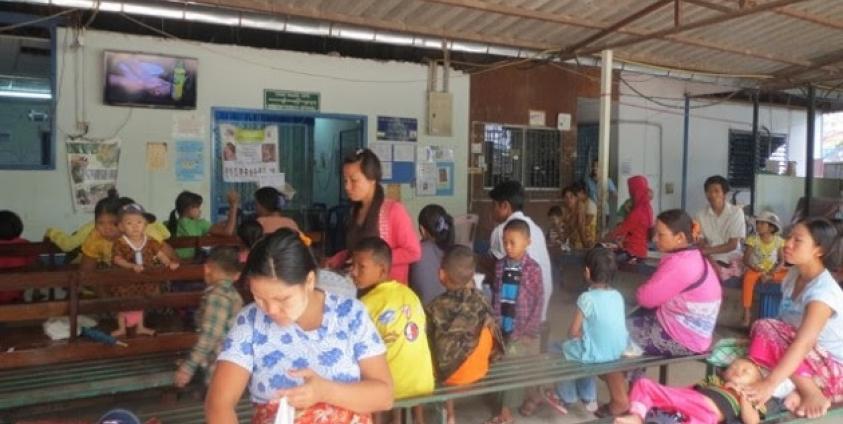The start of the regional wet season has seen an increase in dengue fever cases coming to Mae Tao Clinic located in the Thai-Burma border town of Mae Sot.
Health workers at the clinic told Karen News that since the beginning of June “dengue patients had noticeably increased.”
Saw San Myint Tun, from Mae Tao Clinic’s community health department said that in June last year that there were fewer cases of dengue fever recorded and that this year the clinic has already seen 71 dengue fever cases, with 48 of those being children under 15-years-of-age.
He said: “Dengue is transmitted from a mosquito bite. As the mosquito breeding increases during the rainy season this may be the reason that we are seeing more people suffer from dengue fever. Patients are mostly from the [Thai-Burma] border areas and from the migrant community.”
Saw San Myint Tun told Karen News that since dengue is transmitted by mosquitoes, people should sleep at all times under a mosquito net, use mosquito repellent lotion and clear bushes or garbage around houses to reduce the possibility of being bitten by the aedes mosquito that carries the dengue virus.
A woman from Myawaddy whose child is being treated at Mae Tao Clinic for dengue fever said that her family was busy working and did not pay attention to her child’s condition until her fever became high.
“I didn’t notice that my child had dengue fever. We have to work hard for our living and give all our time for that. I had no time to care for my child. Now the fever keeps getting worse. I feel bad and feel sorry for my child,”she said.
Health workers said that symptoms of dengue range from mild fever to incapacitating high fever, body pain, muscle and joint pain and a rash.
According to the Mae Tao Clinic Out-patient Department records since early June the clinic has seen an average of 400 patients a day and as many as 10 cases a day are dengue patients. Health workers in refugee camps along the border have also recorded an increased in the number of dengue cases during June.








